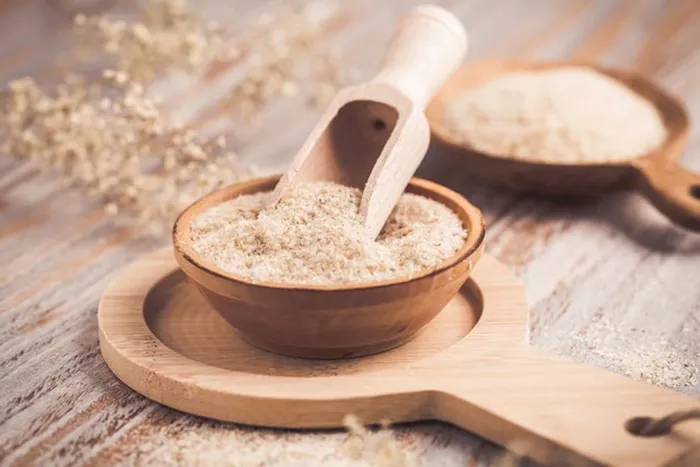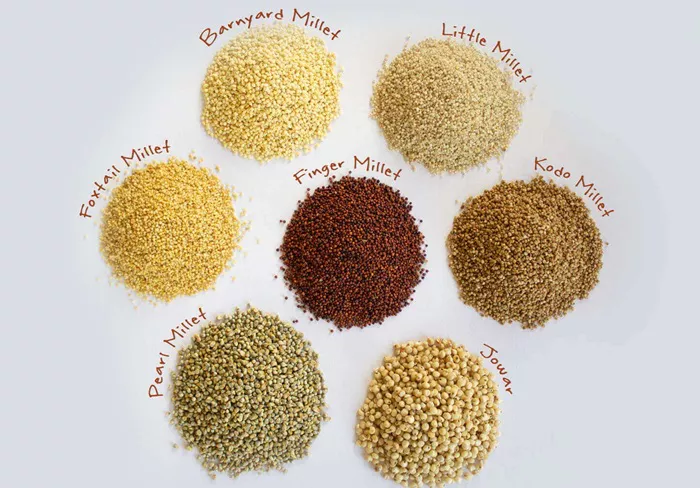Psyllium husk, often referred to as Isabgol, is a popular dietary supplement renowned for its laxative properties and effectiveness in treating constipation. Beyond its primary use, this fiber supplement boasts numerous health benefits, including aiding digestion, managing diabetes, and promoting heart health. It is available in various forms, such as powders, capsules, and packets. However, it’s crucial to consume psyllium husk in moderation to avoid potential side effects.
What is Psyllium Husk?
Psyllium husk is derived from the seeds of the Plantago ovata plant. According to dietitian Kejal Shah, “It is commonly used as a dietary supplement to improve digestion, relieve constipation, and help regulate blood sugar and cholesterol levels.” Research published in the Journal of the American Association of Nurse Practitioners also highlights psyllium’s role as a non-fermented, gel-forming fiber that can assist in weight loss.
Primary Uses of Psyllium Husk
1. Constipation Relief
Psyllium husk acts as a natural laxative by absorbing water and forming a gel, which facilitates bowel movements. A study in the International Journal of Molecular Sciences indicates that it traps water in the intestines, making stool passage easier.
2. Irritable Bowel Syndrome (IBS)
The supplement may help alleviate symptoms associated with IBS by reducing inflammation. A study published in the Turkish Journal of Gastroenterology reported that IBS patients experienced a 90% reduction in symptoms after using psyllium husk.
3. Cholesterol Management
Psyllium has been shown to lower total cholesterol and LDL levels, which contributes to heart health. A study in the American Journal of Clinical Nutrition found that participants taking 5.1 grams of psyllium husk twice daily for 26 weeks experienced a significant reduction in cholesterol levels.
4. Blood Sugar Control
The fiber supplement aids in regulating blood sugar levels, making it beneficial for diabetes management.
5. Weight Management
Psyllium promotes a feeling of fullness, potentially aiding weight loss efforts. A study published in Nutrition Today showed that overweight patients with type 2 diabetes lost an average of 3.7 kg after using psyllium over two months.
6. Blood Pressure Regulation
Regular consumption of psyllium husk can lead to modest reductions in blood pressure, particularly among individuals with hypertension. Research in Food Science & Nutrition noted decreases in systolic blood pressure among participants.
Recommended Dosage
The typical dosage of psyllium husk ranges from 5 to 10 grams per day, taken with meals. Shah suggests starting with 5 grams mixed with a glass of water, taken three times daily. It is essential to gradually increase the dosage, if tolerated, with a maximum of 20 to 25 grams daily for optimal benefits. Adequate water intake is crucial to enhance the effectiveness of psyllium and prevent gastrointestinal discomfort.
Consumption Methods
Psyllium husk can be consumed in several forms:
Powder: Mix 1-2 teaspoons with at least one glass of water or liquid. Stir well and consume immediately to avoid thickening.
Capsules: Take 5-6 capsules with a full glass of water, typically 1-3 times daily.
Wafers: Chew thoroughly before swallowing, following the dosage instructions on the packaging.
Packets: Similar to powder, dissolve the contents in water and consume promptly.
Precautions
Psyllium husk should be avoided by individuals with certain conditions, including:
- Those with a known allergy to psyllium.
- Individuals suffering from bowel obstructions or narrowing of the gastrointestinal tract, as this poses serious risks.
- People with swallowing difficulties, as psyllium can lead to choking.
Those experiencing fecal impaction, which may worsen the condition.
Individuals with symptoms like rectal bleeding or severe abdominal pain should discontinue use and seek immediate medical advice.
Caution is also advised for individuals with kidney issues, as psyllium may affect fluid balance.
Potential Side Effects
While psyllium husk offers numerous health benefits, it can cause side effects, including bloating, gas, abdominal pain, cramps, constipation, diarrhea, and nausea. These symptoms are more common when starting psyllium or if consumed in excessive amounts. Severe allergic reactions, such as hives or difficulty breathing, require immediate medical attention. Additionally, failure to consume adequate fluids with psyllium may lead to choking or gastrointestinal blockages.
Conclusion
Psyllium husk is a versatile supplement that extends beyond its use for constipation relief. It supports digestive health, helps alleviate IBS symptoms, and contributes to managing cholesterol, blood sugar, and blood pressure. However, it is essential to consume this fiber supplement responsibly to minimize potential risks and side effects.
Related Topics
Essential Hair and Skincare Tips for Winter Preparation
Understanding Skincare Ingredients for a Radiant Glow This Festive Season


































